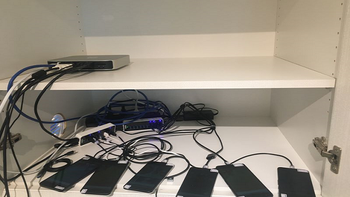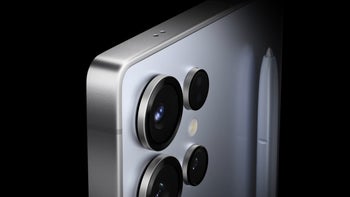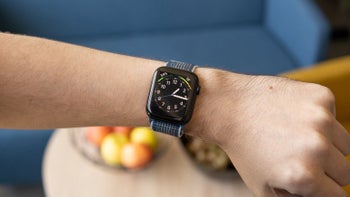Researchers find no evidence that Android apps eavesdrop, but some do spy on you

Researchers at Northeastern University conducted some tests to see whether your phone is secretly listening to your words in order to serve you ads that you would be interested in. Looking at the media files sent out by 17,260 apps in the Google Play Store, the researchers found no evidence that your phone is eavesdropping on your conversations. This was done using ten Android handsets running an automated program (see image at the top of this article), although there were some limitations. For example, the program couldn't create usernames and passwords to sign into an account.
What brought this up was an article in Vice that was written by someone who did a five day experiment looking for a connection between words he said, and the ads he received on his handset. According to the article, the author talked about "going back to uni" and "needing cheap shirts" before ads appeared on his phone for university classes and shirts. Considering that the experiment consisted of only two attempts a day over five days, there is certainly nothing scientific about it. And ads that the author claims never to have noticed before just might have appeared on his phone at earlier times. Can you remember every ad that has graced the display of your mobile device?
What the researchers at Northeastern did discover is that some apps are video recording what is on the screen of your phone and sending that image to a third party. For example, a junk food delivery app called goPuff used a service from mobile analytical firm Appsee to record its users' interaction with the app. The video was then analyzed by Appsee.
"User recordings are one of the cornerstones of qualitative app analytics. They give you the opportunity to see exactly what your users’ journey is in your mobile app. Every tap, swipe, and action of every screen is recorded, allowing you to gain instant insights of your app’s user experience."-Appsee
At first, goPuff failed to put up a disclaimer to alert visitors to its app that their interaction was being recorded. But after hearing from the researchers, goPuff added to its privacy policy that "Appsee" might receive users PII." In addition, the company removed the Appsee SDK from the latest iOS and Android builds of the goPuff app. Appsee blames goPuff, and says that its technology was misused by the app, resulting in a ToS violation.
GoPuff states that it used Appsee to help it optimize its website. And that very well could be true. But the news here is that your phone doesn't need to eavesdrop on what you're saying in order to spy on you. It can simply record what actions you are taking.











Things that are NOT allowed: